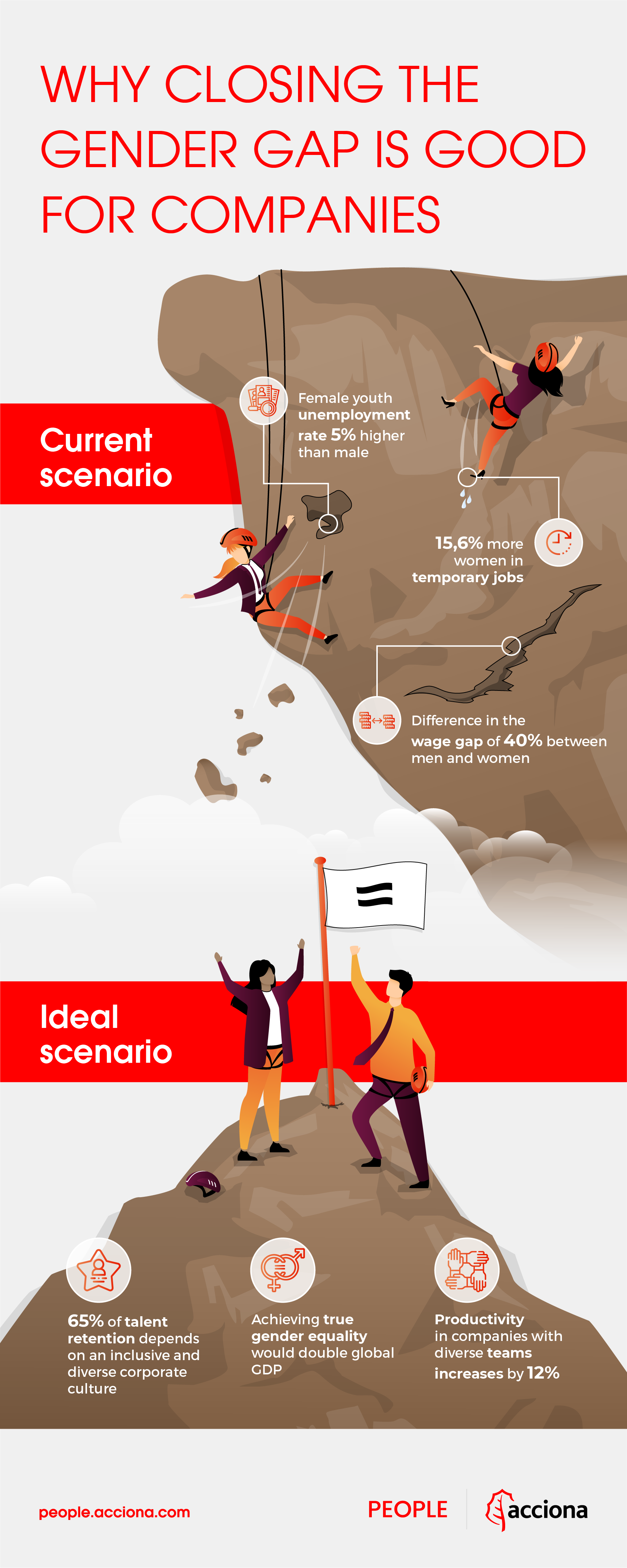The pandemic and the measures to prevent its spread are causing a disproportionate increase in the unemployment rate of women (compared to men), as well as reducing their total number of working hours. In fact, according to UN estimates, by 2021 the coronavirus crisis will push 47 million women and girls into poverty. In addition, teleworking, school closures and home isolation have meant that “the unequal distribution of care work in the pre-existing household has had an asymmetrical impact, affecting women in particular”.
Coronavirus “could set us back 25 years in terms of equality for women”, said specialist Anita Bhatia. But for that not to happen, it’s essential that the economic sector and its companies, both public and private, continue to promote diversity and equality in the workplace, also reaping the many benefits that gender equality brings with it, in business and in life. Not for nothing could female leadership be the most effective rival against COVID-19.
Benefits of gender equality in the workplace and in managerial positions
A revealing fact: 60% of graduates in Europe are women, but they account for just over 13% in management roles. Why is it that so few qualified female workers reach top positions? The European Commission defines the glass ceiling as an “invisible barrier resulting from a complex web of structures in male-dominated organisations, which prevents women from reaching top positions“.
